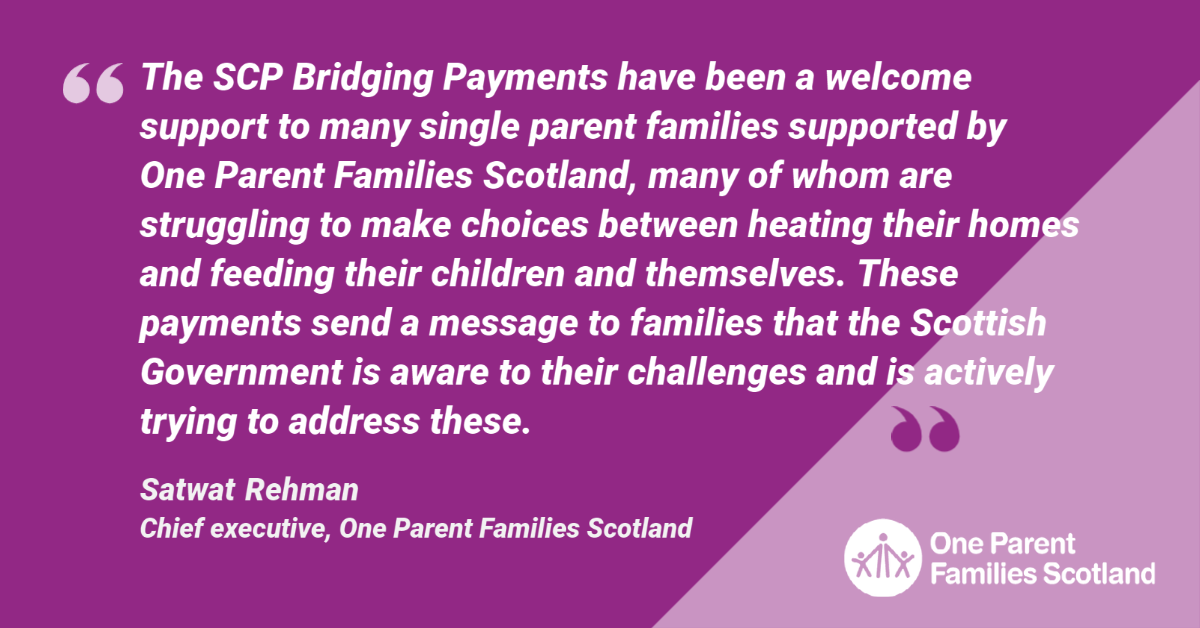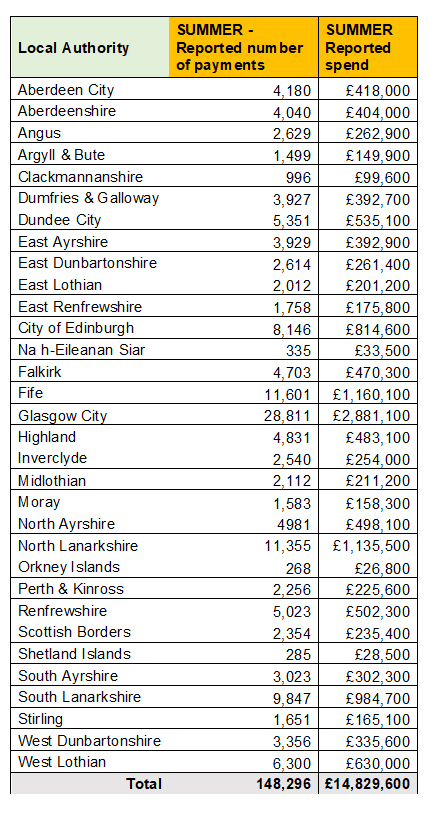Boost for family budgets before Christmas
16/09/2021
News
Low income families, around 148,000 children will benefit from a £320 uplift before Christmas as part of the Scottish Government’s commitment to tackling child poverty.
Eligible families with children in school will receive payments of £160 per child in October and December. Two Bridging Payments of £100 have already been made via local councils, taking the total to £520 this year.
The cash is equivalent to the Scottish Child Payment (SCP), a £10-a-week benefit which provides regular, additional financial support for families in receipt of qualifying benefits to assist with the costs of caring for a child aged under six years old.
SCP will be extended to all eligible under-16s by the end of 2022, with quarterly Bridging Payments made in the interim. The Scottish Government also intends to double the SCP to £20 per week as quickly as possible following the expansion.
Social Justice Secretary Shona Robison will highlight the payments today when she opens a parliamentary debate on the commitments in the Programme for Government which aim to create a fairer society.
- Shona Robison, Social Justice Secretary
- Councillor Gail Macgregor, COSLA’s Resources spokesperson
- Satwat Rehman, CEO of One Parent Families Scotland

Am I eligible?
All P1 to P4 pupils receive the universal meal at school however only the families eligible on financial grounds will receive this additional payment.
Eligibility info:
- Both Working Tax Credit and Child Tax Credit with a household income of £7500 or less
- Universal Credit with a monthly earned income of not more than £625
- Child Tax Credit only with an annual income of less than £16,105
- Income related Employment and Support Allowance
- Asylum Seeker, receiving support under part IV of the Immigration Act 1999.
If you are eligible and have already applied for free school meals you will receive the bridging payment without applying and completing further forms. If your bank or contact details have changed ensure your local council has your new details
Background
Programme for Government 2021-22
Last year the Scottish Government provided around £2.5 billion in support for people on low incomes, including almost £1 billion targeted at children.
More than 108,000 children aged under six have benefited from the Scottish Child Payment since it was introduced in February 2021, to the end of June.
Bridging Payments are made for each child in receipt of free school meals due to low income and are distributed by local authorities. In 2022, four equal payments of £130 will be made to eligible families at Easter, summer, October and Christmas to broadly align with the start of school holidays.
Scottish Child Payment, together with the three Best Start Grant payments and Best Start Foods, could give families on low incomes up to £5,300 by the time their first child turns six.
The Scottish Government have also provided a pandemic support payment of £130 to every household who received Council Tax reduction in April, reaching around 500,000 households.
